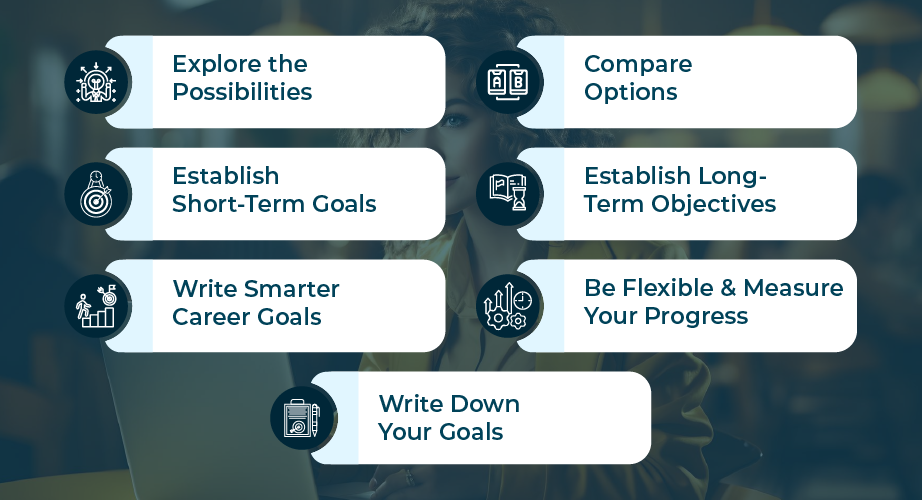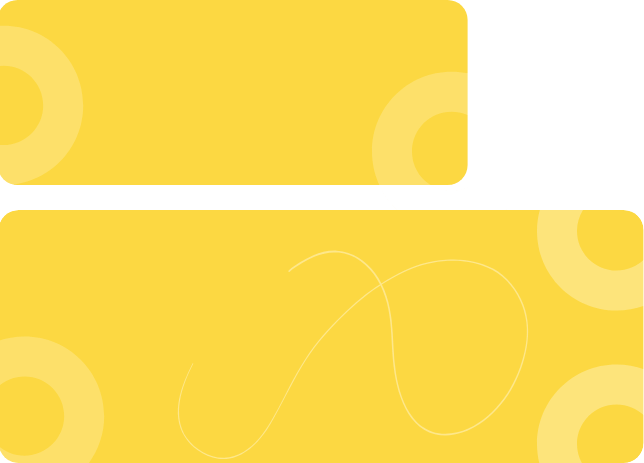Feeling stuck in your career? Unsure of your next move or how to achieve your dream job? Whether you’re aiming to become a contracts administrator in a small construction firm or the finance director of a multinational corporation, setting clear career goals and defining the steps to get there are essential for success and satisfaction in your chosen field.
Those who are successful in the workplace apply a basic concept known as career planning. So why not use the same strategy in your career by creating a career development plan that puts you in control of your direction?
Our suggestions below will help you set your career goals and write a career plan with clear, actionable objectives. Ready to take charge of your future? Let’s get started and read through this blog!
What are Career Goals?
A career goal is like a personal mission statement that defines the ultimate job you aspire to achieve throughout your career. For instance, do you dream of becoming the creative director of a top advertising agency or the chief engineer at a leading tech firm? By setting a realistic and clear career goal, you can create an action plan or personal development plan to guide you toward your professional ambitions. What specific job title are you aiming for, and how do you plan to get there? Identifying this goal will help you map out the steps needed to make your dream a reality.
7 Steps to Set and Achieve Career Goals

There are a few measures you need to take along the path to assist you in realizing your dream career. It takes more than simply motivation to handle your work well. Making a personal growth plan and preparing ahead of time is essential to achieving your goals. Here’s how to do it-
1. Explore the Possibilities
You may have known exactly what kind of work you want to pursue for a long time. Or maybe you’re considering a few different occupations but aren’t sure one is the greatest fit for you. In any case, the first step in creating a career plan is to thoroughly research the professions that you find interesting and make sure you are comfortable with the possibilities available to you.
Ask Yourself:
- How do my skills and interests match up? Where are the gaps?
- What do I find particularly inspiring about the occupation?
- What training, support, and resources could I expect to receive? Will these help or quicken my success?
- What is the typical work environment like?
- What are the standard responsibilities?
- What advancement opportunities are available?
- What level of work-life balance is achievable?
By answering these questions, you will gain greater insight into your identified occupations.
2. Compare Options
Comparing your possibilities is the next stage to make decisions. Begin by considering which occupation suits you best and will satisfy your professional and personal ambitions. Reflect on which jobs align with your skills, interests, and values, and think about the demand for these occupations in the future. Evaluate the advantages and disadvantages of each option, considering factors such as potential salary, work-life balance, and long-term career satisfaction. By objectively assessing these elements, you can identify which job is the best fit for you and will help you achieve your career goals.
Establish Short-Term Goals
Making a list of immediate steps that will get you started toward your career goal is the third phase. Concentrate on the following goals you have over the next three to five years-
- Learning- Do you need to earn certain qualifications?
- Experience- What experience do you need to acquire?
- Skills Development- What specific skills should you develop?
- Ideal Next Job- Which role is appropriate for the next progression?
- Professional Membership- Would professional membership aid your career advancement and support your professional development goals?
Review job descriptions for your next role to identify any skills or competencies you need to focus on.
3. Establish Long-Term Objectives
Once you have set your short-term goals, shift your focus to long-term planning. Make a realistic career progression path that outlines the positions you must move through and the necessary expertise, responsibilities, and abilities. For each job, specify the technical skills to acquire, the soft skills to develop, and the competencies to learn, such as commercial awareness and negotiation.
Identify the specific experience and achievements needed, and consider opportunities for personal or professional growth, like professional memberships or upskilling, to support your professional development goals. Determine the ideal tenure for each role to build the necessary expertise. This pathway will guide you from your current position to your ultimate career goal.
4. Write SMARTER Career Goals
When creating your action plan, set clearly defined short objectives you can work towards using the SMARTER system. Make your goals specific by being as clear as possible. Ensure they are measurable by quantifying what you must achieve. Keep your goals achievable and within reach. Pay attention to reasonable, and realistic goals.
Set timely goals by creating timeframes for completing each step. Make sure your goals are empowering, feeling right for you, and helping you make the changes you want. Finally, keep your goals reviewable, allowing flexibility to adjust to changing conditions. By following the SMARTER system, you can create a solid plan to achieve your career goals.
5. Be Flexible and Measure Your Progress
Be flexible. Your priorities and objectives can be altered over time due to personal circumstances or external factors. Check-in periodically to ensure your goals are still achievable and your objectives remain realistic. Measure your progress and congratulate yourself on your achievements.
If you need support to make improvements, consider seeking help from a mentor, enrolling in a training course, or exploring stretch opportunities in your current role.
6. Write Down Your Goals
Career planning or goal setting will only achieve its purpose if you diligently follow the path you have planned. Write down your career goals as part of your career development plan to keep a clear focus, identify achievements, and make any necessary alterations. Your career deserves focused planning, just like planning an important trip.
What If You Are Still Unsure?

If you’re unsure about a specific occupation of interest, start with a broad initial career goal. Think of it as setting a general direction rather than a precise destination. As you gain more experience, your plans will become clearer, and you’ll either confirm that you’re on the right path or decide to explore other options.
If you’re unsure about a specific occupation of interest, start with a broad initial career goal. Think of it as setting a general direction rather than a precise destination. As you gain more experience, your plans will become clearer, and you’ll either confirm that you’re on the right path or decide to explore other options.
Conclusion
Feeling stuck in your career? Have you ever wondered how to align your career goals with your personal growth? Career planning requires careful consideration, thorough research, and flexibility. By using tools like a career goal planner, you can set clear career development goals and create a roadmap to achieve them. Successful career planning involves continuous learning, self-reflection, and adaptability.
For holistic guidance, consider a career tarot card reading. It can provide unique insights and help you uncover potential career paths. At Urja Healing with Dr. Avisha Mathur, you can take a personalized career session to align your career aspirations with your personal growth. Imagine using this guidance to balance your professional ambitions and achieve a fulfilling career. Stay focused on your goals, and you will achieve the career success you desire.
 By
By


